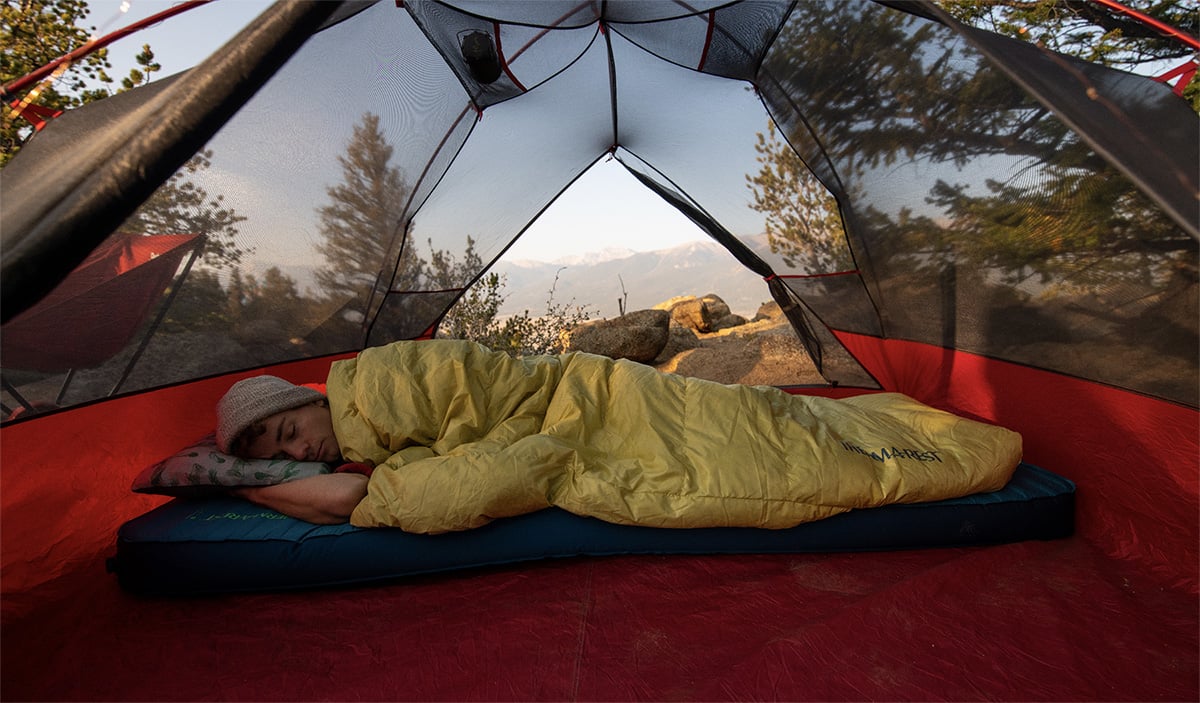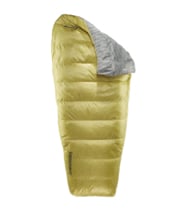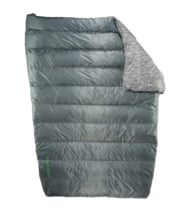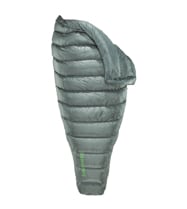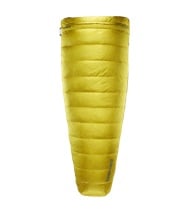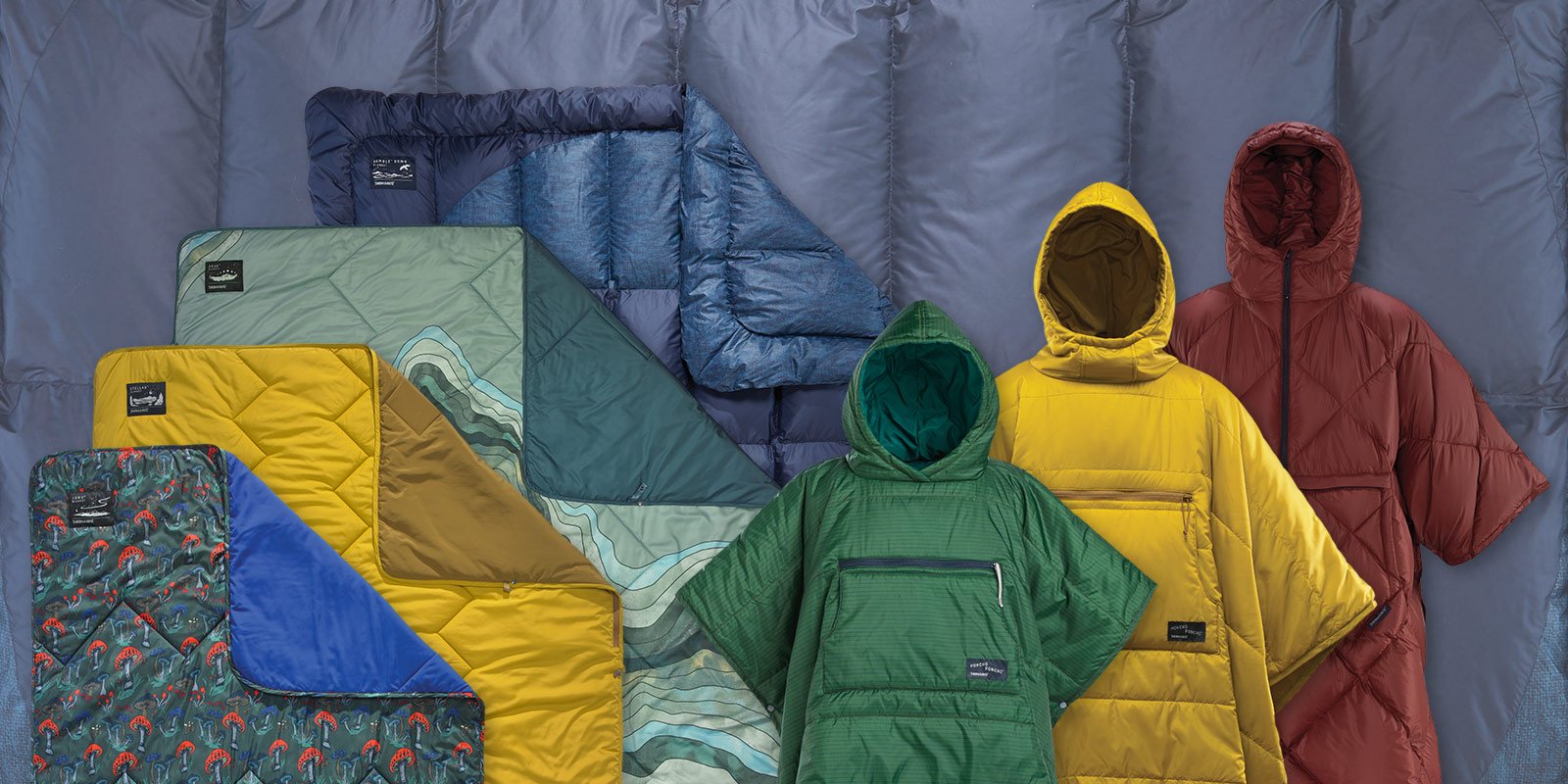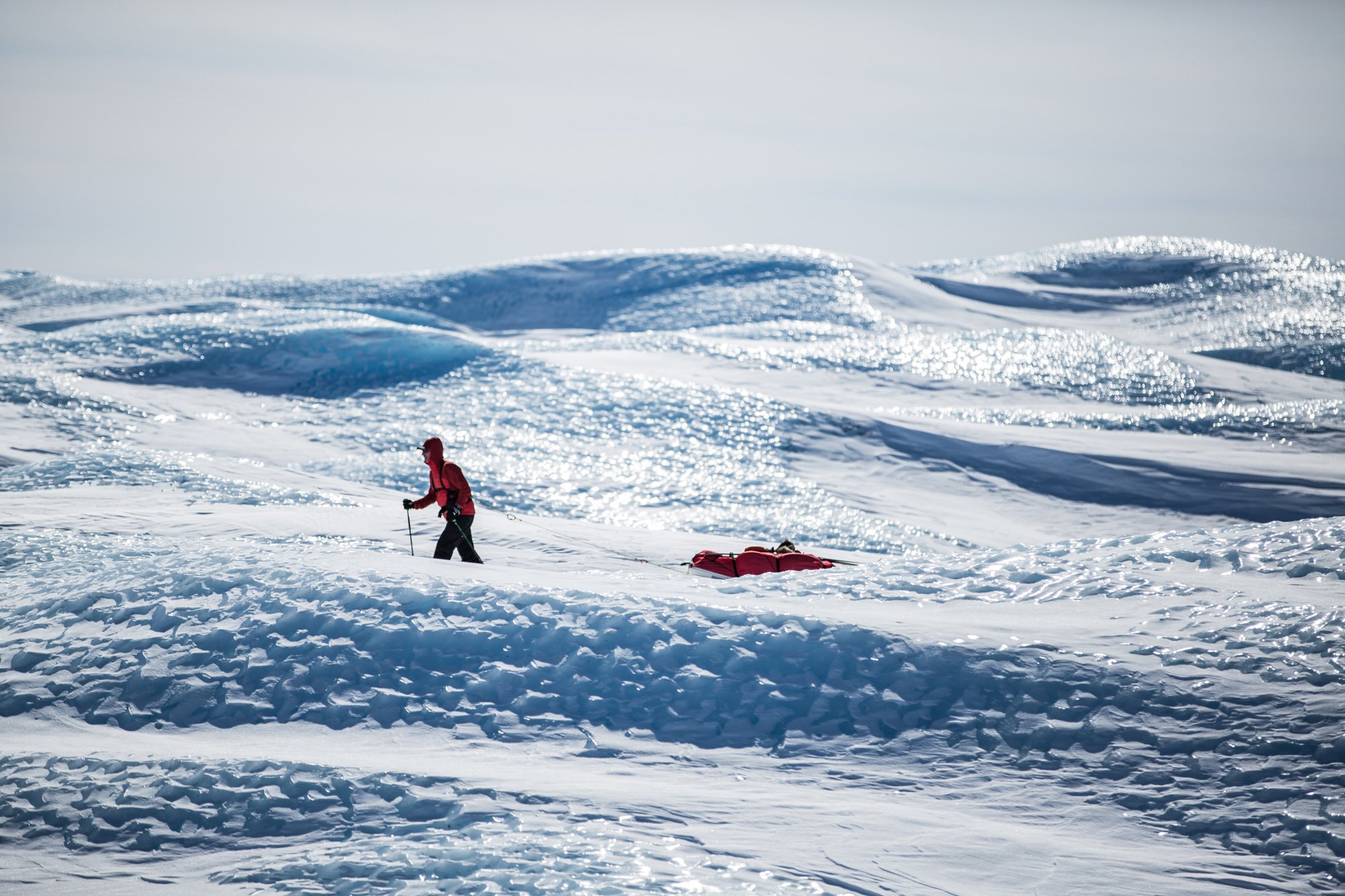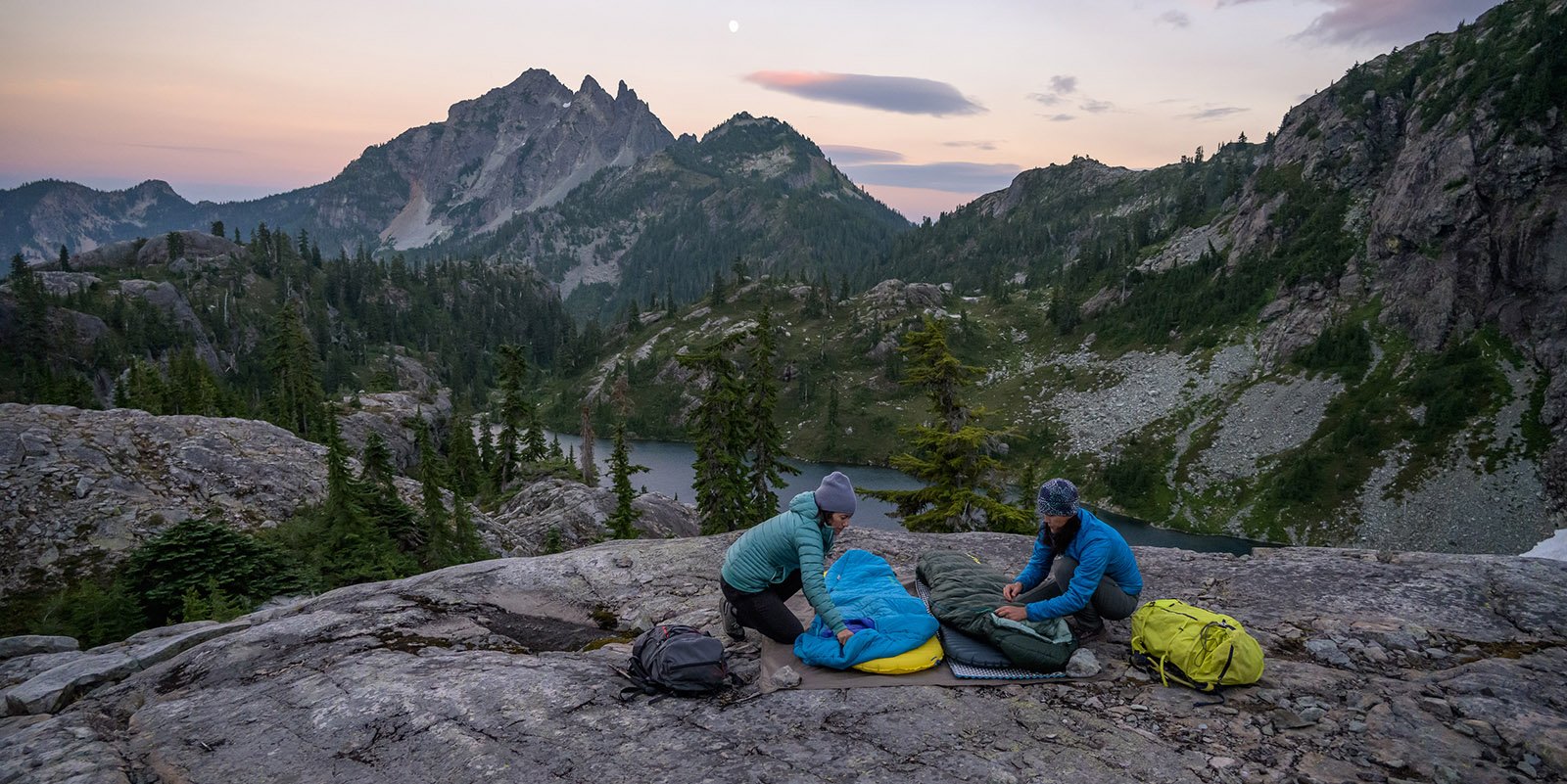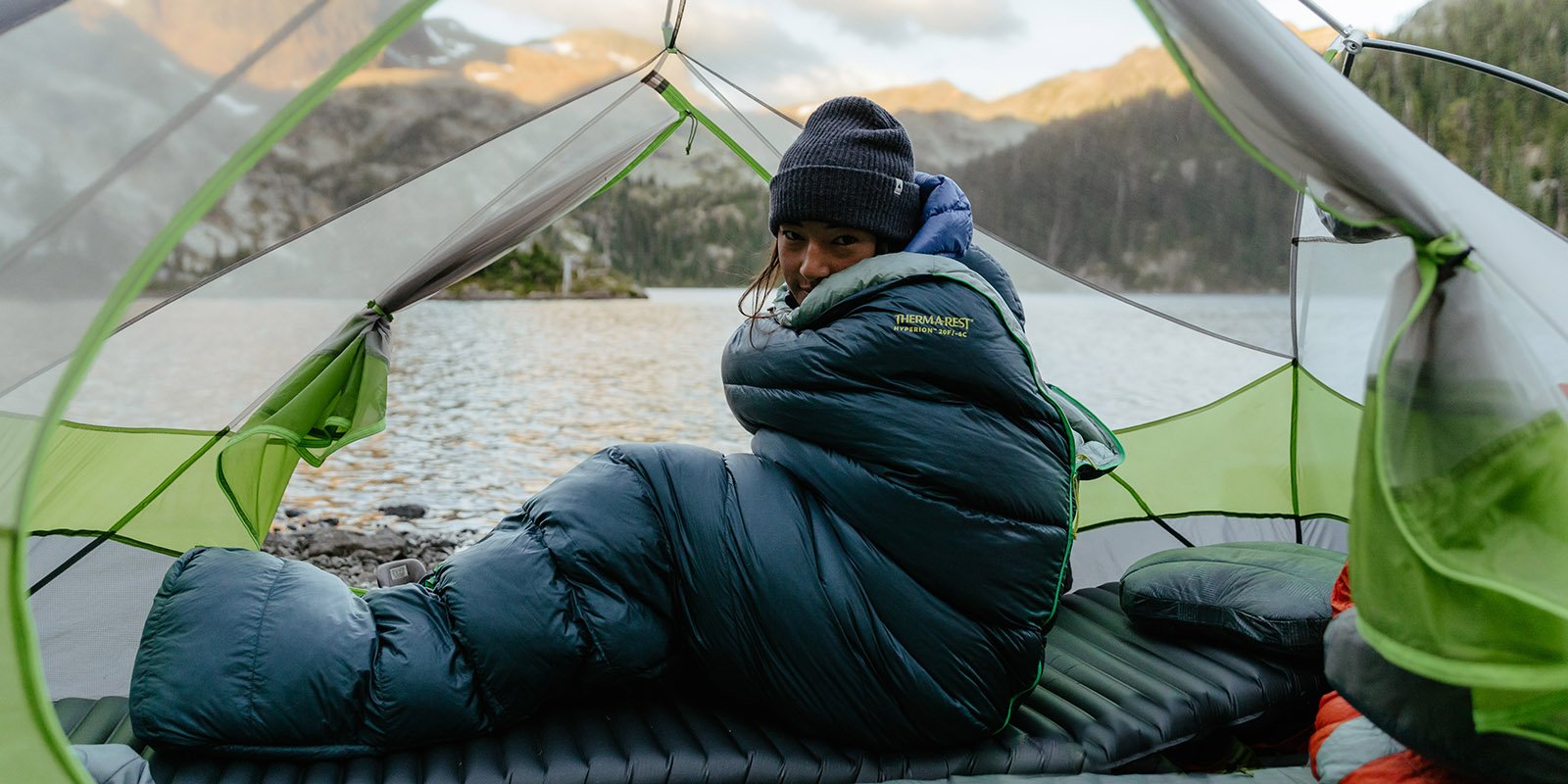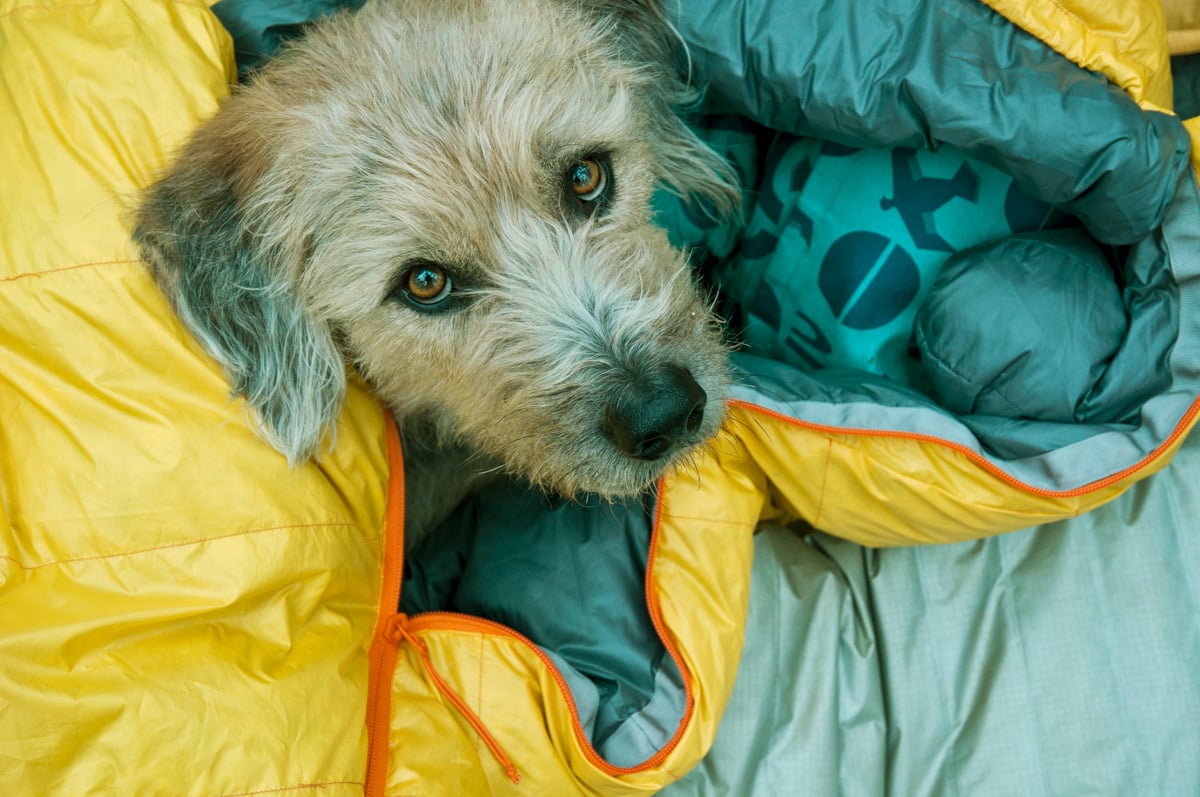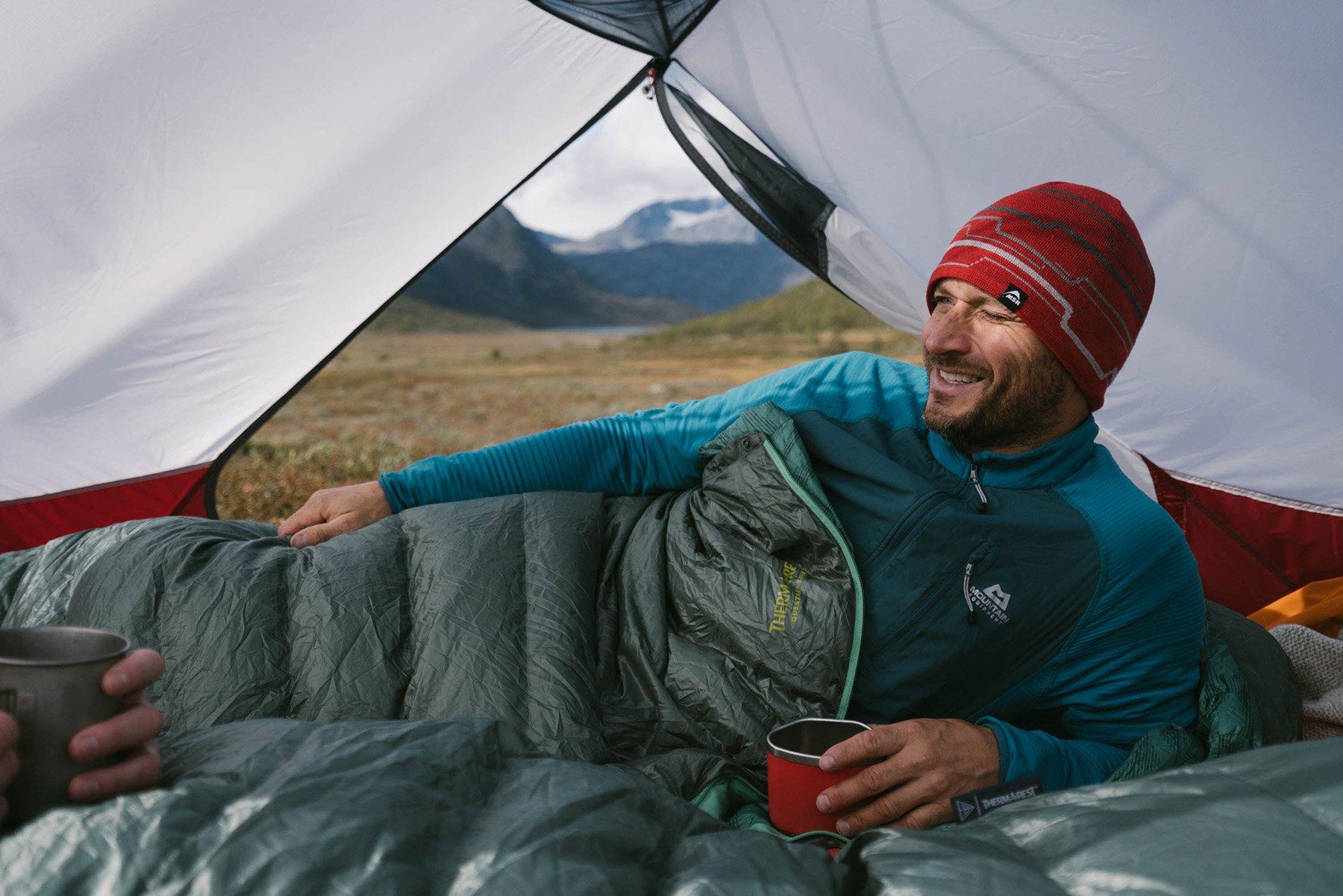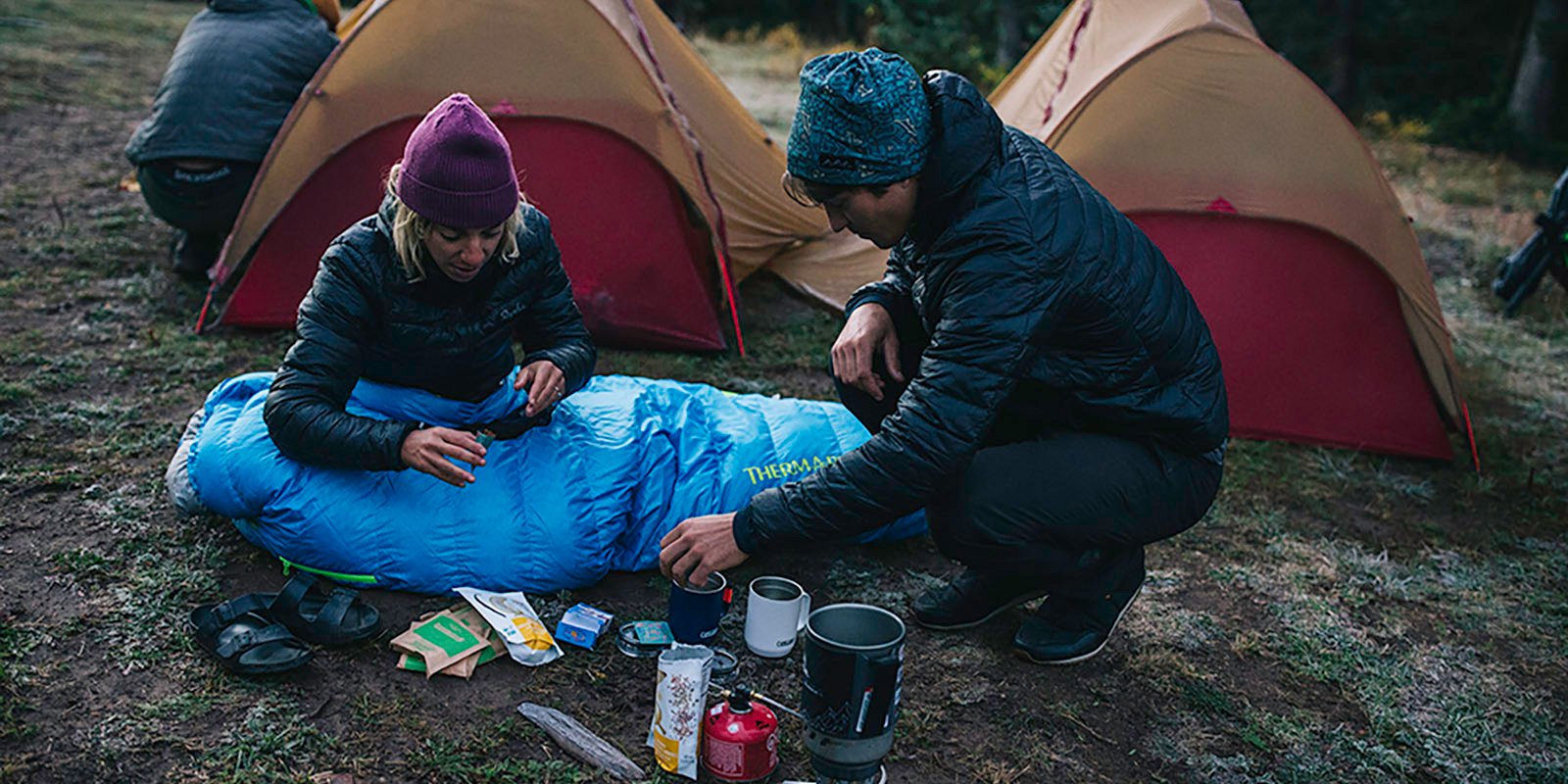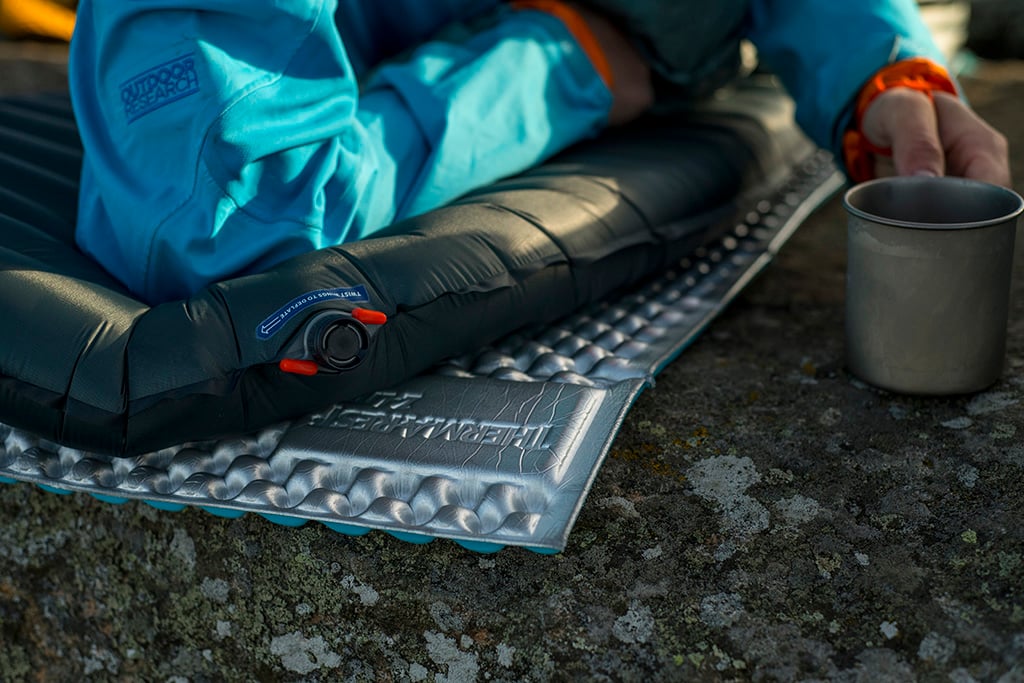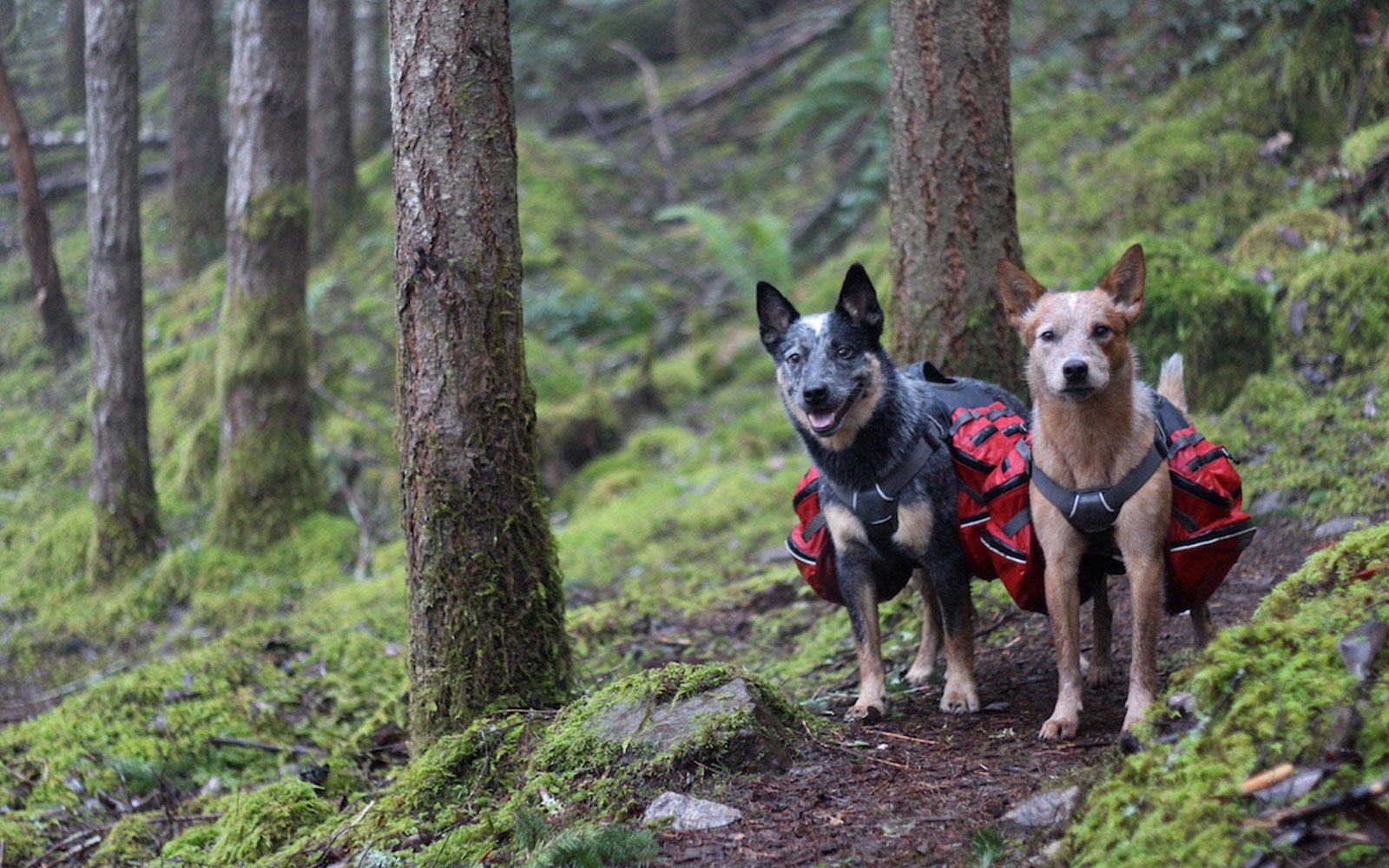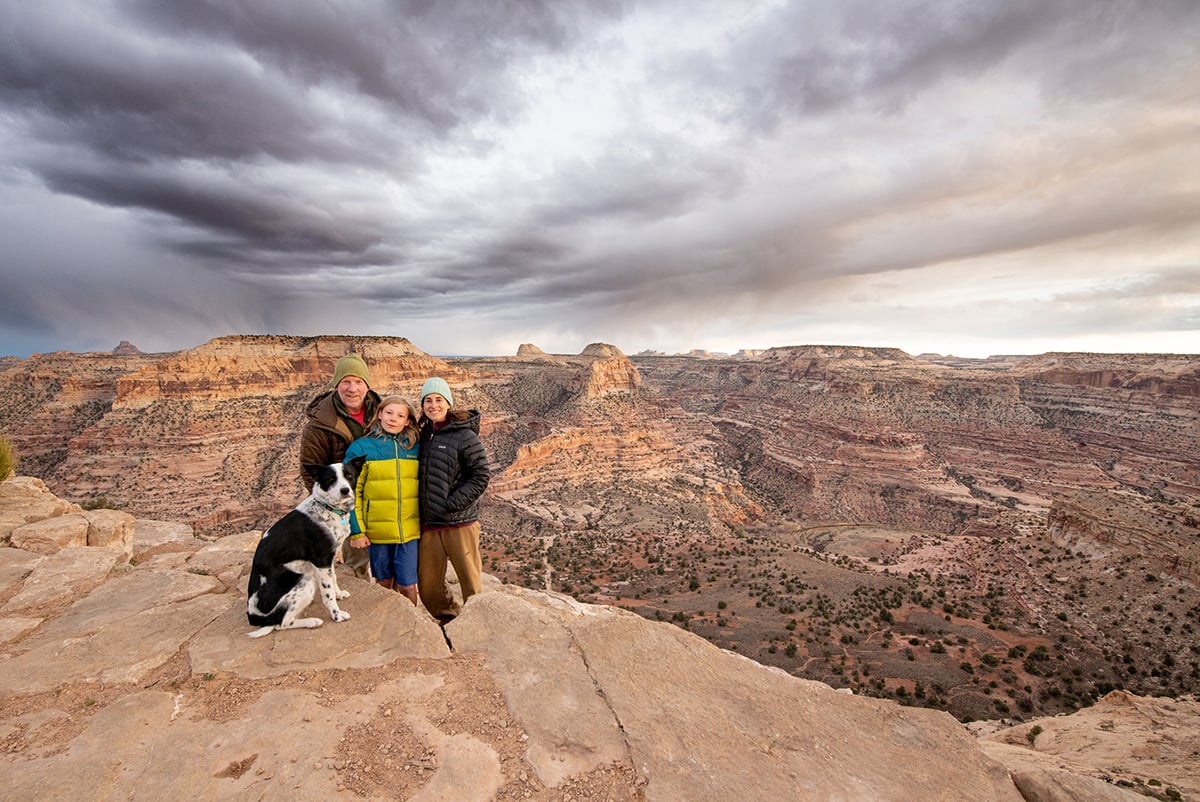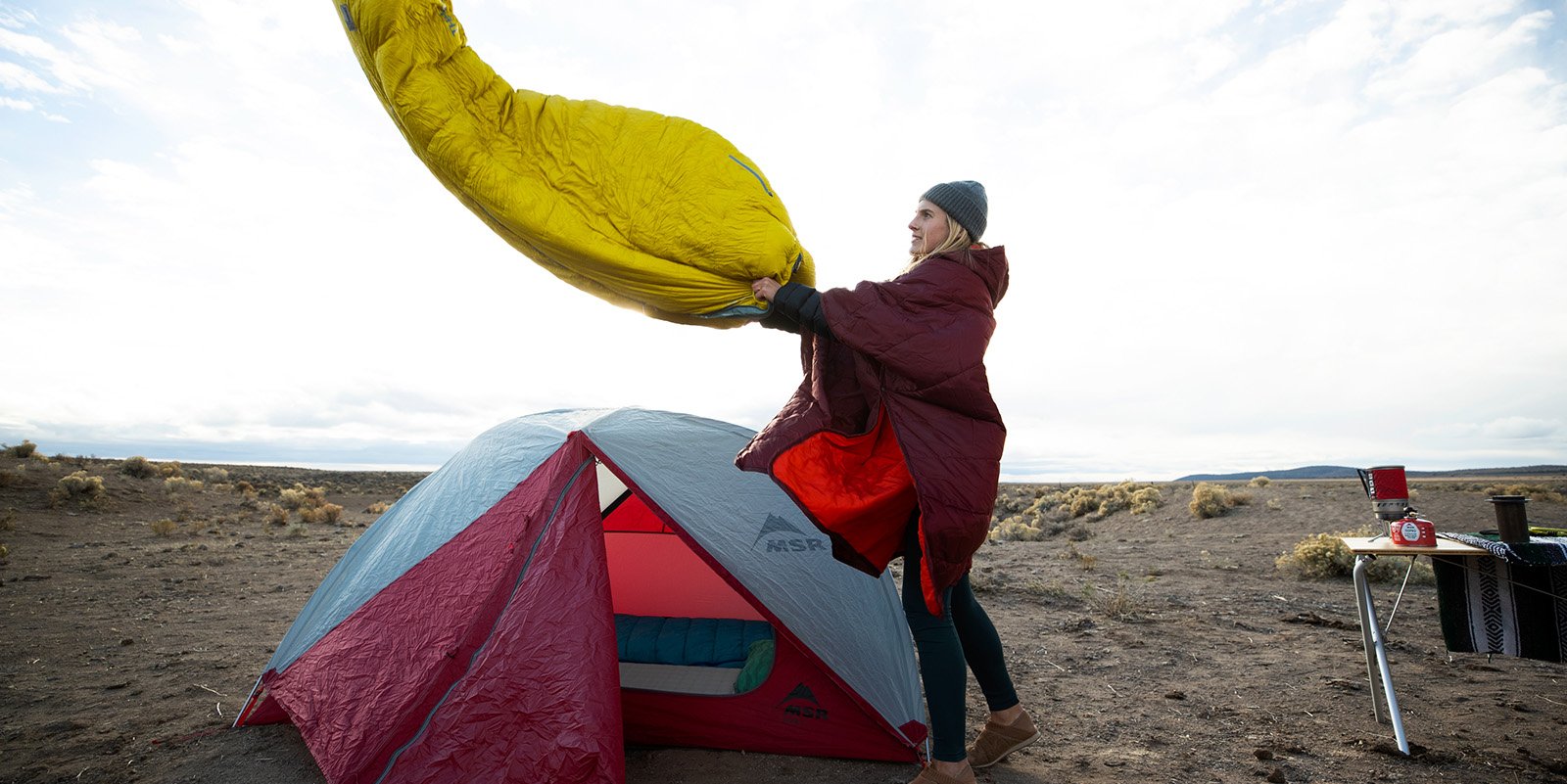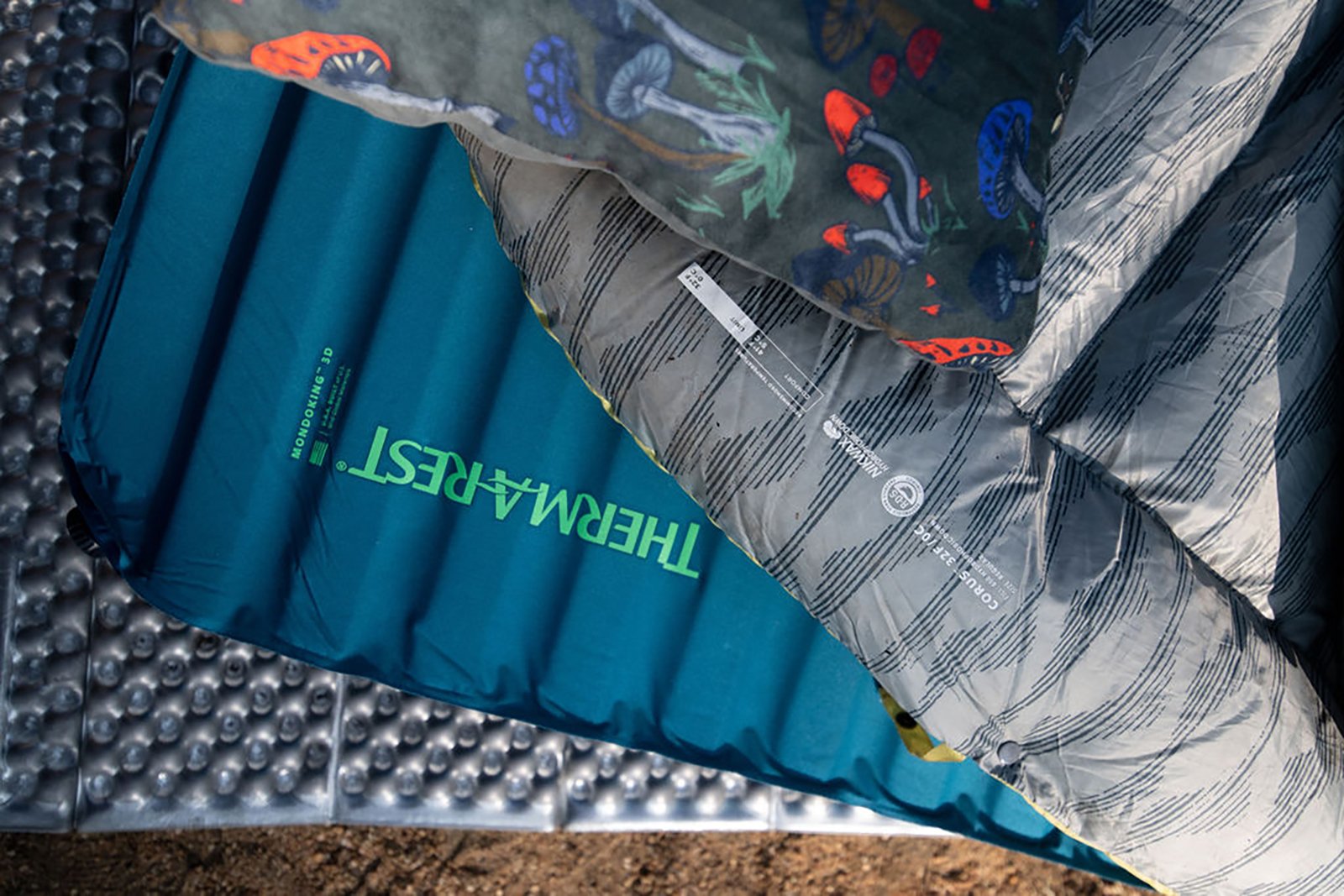Are you someone who spends most nights in temperatures well above freezing? Have you found that your sleeping bag is causing you to overheat, sweat and then catch a chill? Or maybe, you know you’ll spend a just few nights winter camping each year, but can’t justify buying a brand new OF-degree down sleeping bag for just a few trips. In either case case, a camp quilt may be just what you’re looking for.
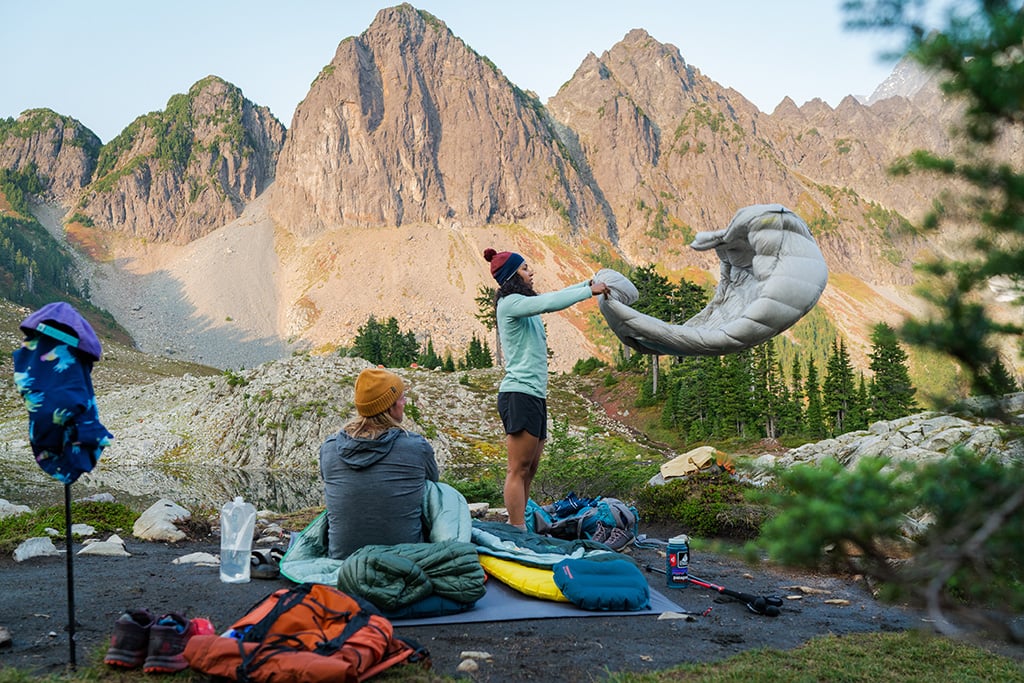
The Camp Quilt Philosophy
A camp quilt is basically half a sleeping bag, allowing you superior freedom of movement and temperature regulation than a full sleeping bag. Designed to drape over you and attach to your sleeping pad, a quilt provides a top layer of insulation, while letting the mattress insulate you from the ground.
But what about the cold seeping in from below, you may wonder?
Consider this: the insulation in the bottom of your sleeping bag, whether it’s down or synthetic fill, is compressed by your body weight. This means that the fill can’t properly do its job because the compression eliminates most of the air pockets that the insulation uses to trap warm air. This means your pad is the part of your sleep system that insulates you from the ground. That’s why choosing a pad with the right R-value for your needs is a critical part of building your overall sleep system. While we intentionally reduce the amount of fill on the bottom of our bags to reduce weight and bulk for this reason, camp quilts eliminate all of that bulk and weight, without drastically changing the temperature rating.
To be clear, a quilt will not be as warm as a well-sized sleeping bag that eliminates drafts more efficiently once you’re zipped inside. However, quilts aren’t without draft protection. Our quilts utilize side baffles, snap neck closures, plus a mattress-wrapping footbox and SynergyLink™ Connectors to ensure tight integration with your pad.
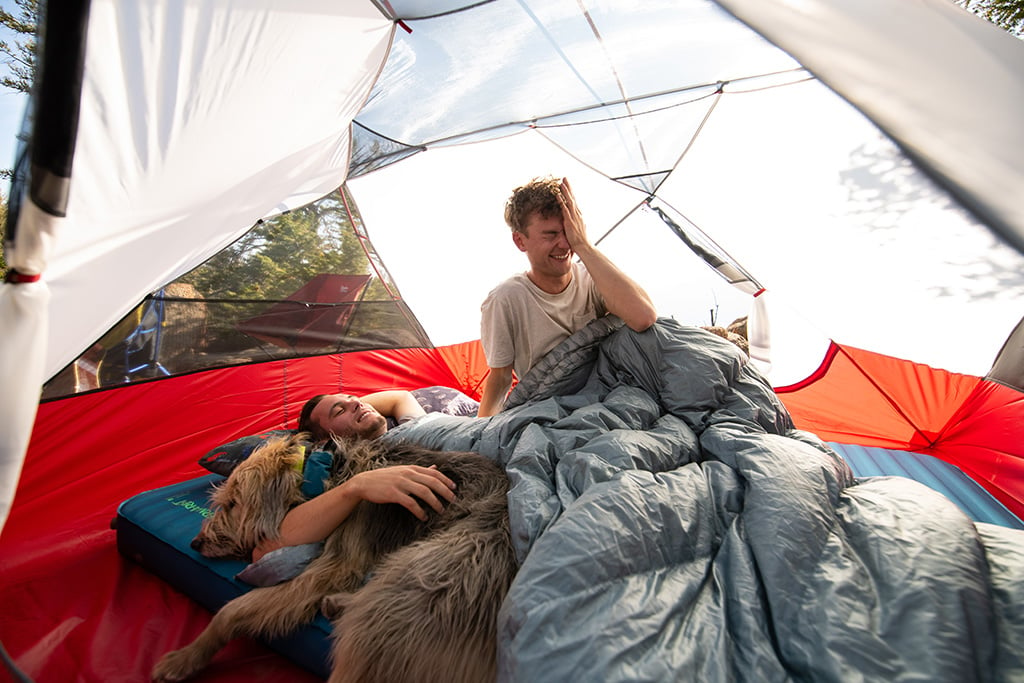
In sub-freezing temperatures, full-zip sleeping bags are still the way to go. However, the warmest camp quilts we make are rated to 20F/-6C, making them optimal for camping in temps above freezing. If most of your nights outside are spent above the freezing level, it’s actually more efficient to be equipped with a camp quilt. You’ll be carrying the appropriate amount of insulation, less total weight, and eliminating the overheating cycle many campers experience on warmer nights with traditional sleeping bags.
But perhaps you do camp in below-freezing temps sometimes. Should you eschew the camp quilt option altogether? Not if you are interested in building a versatile and adaptable all-season sleep system.
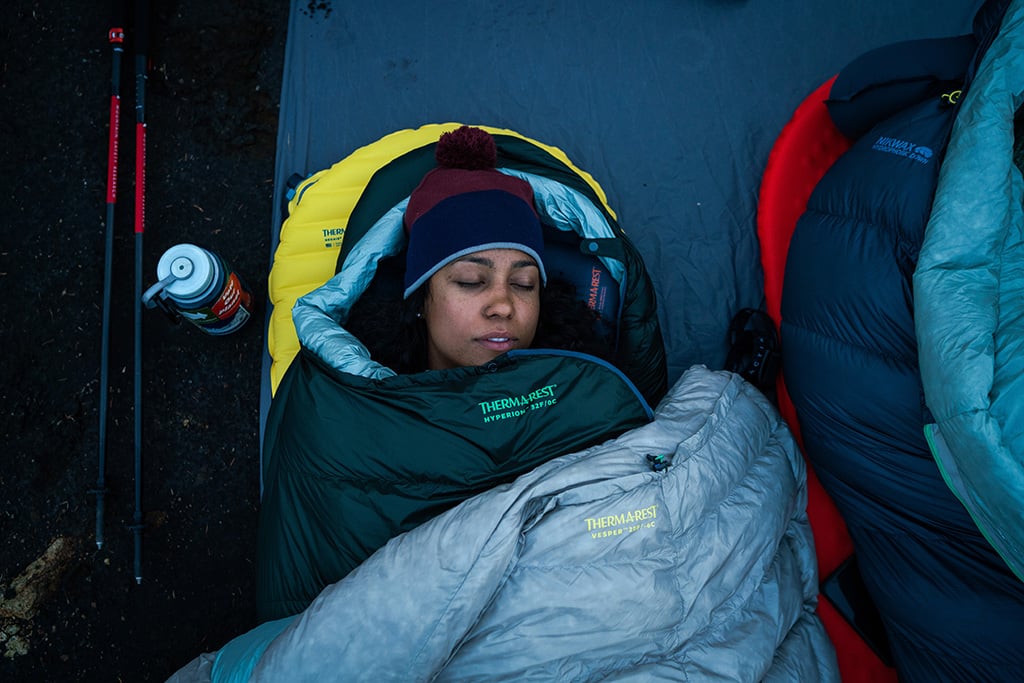
The Adaptable Sleep System
Often quilts are considered highly specialized, ultralight, purist-only pieces of equipment. But a huge feature of camp quilts is the way they integrate with and augment your existing sleep system. So while camp quilts may seem specialized, they actually give you the ability to create an incredibly versatile sleep system.
Take deep winter camping for example. Say you have a four-season sleeping bag that is rated to 0F/-18C, but you’re determined to head out despite the forecast showing a sharp dip into negative temps. You have two options (without borrowing your roomie’s gear) if you want to stay warm: buy a new ultra-warm sleeping bag, or you could purchase a camp quilt and layer it on top of your existing bag, giving you the boost in warmth you’re after. Then, when summer comes, you have the perfect sleep solution for warmer nights spent under the stars.
If you’ve been hunting for the perfect sleeping bag, do yourself a favor and consider a quilt. It’s like trying trail runners on your first backpack, after wearing heavy hiking boots for years. You’ll be so shocked at the added comfort and versatility, you might never go back to a full sleeping bag for summer again. Add in the versatility to push your existing sleeping bags into the next season, and you start to see why quilts are rapidly becoming the best solution to so many needs.
Check out our entire selection of sleeping bags and camp quilts.
Related Posts:
- Camping with a Quilt – 5 Myths Debunked
- Backpacking with a Quilt: The Trail Less Traveled
- The Ultimate Guide to Sleeping Bags & Quilts
Updated. Originally published February 18th, 2016.
